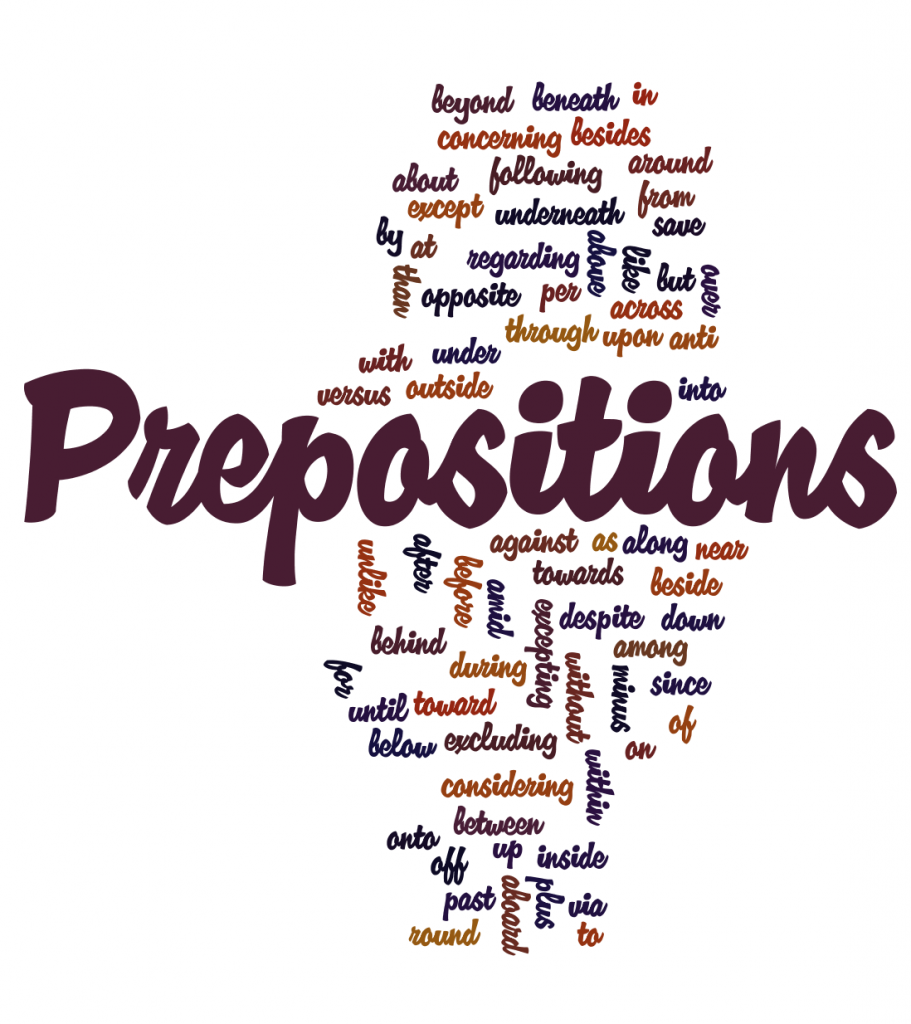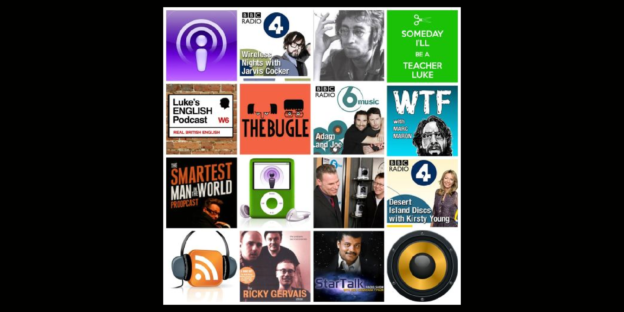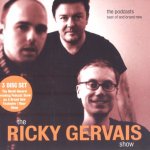This episode is all about urban myths. Get your thinking hat on in this episode because it’s time to evaluate a few stories and beliefs and decide if they are based in reality or if they’re just the product of an overactive imagination, or rumours, or just plain old-fashioned bullcr*p! I will also teach you some very useful language connected to expressing if you think something is true or not. There are vocabulary notes, transcriptions and more details below. [Download]
![]() In This Episode we will:
In This Episode we will:
Consider what an urban myth actually is
Look at a news story about a commonly held belief from another country (and decide if it’s really true or not)
Look at some useful language – phrases and sentences we use to say “That’s true” or “That’s not true” – useful, natural vocabulary!
Consider some commonly told and surprising ‘facts’ and decide if they’re true
Talk about some of the UK’s favourite superstitions (if we have time – if not, that will be another episode in the future some time)
What’s an urban myth?
Essentially, this is a story or a fact which people spread around as if it is true, but in fact it is probably just made up. Often these urban myths or urban legends are personal stories or anecdotes, typically 2nd hand ones (like, “this happened to a friend of my brother’s girlfriend’s cousin and it’s absolutely true!”) and often involve something horrible, scary and shocking. Urban myths may also be just commonly held beliefs about something which are not based on any real evidence or fact, but are perpetuated out of misinformation, or as a hoax.
Superstitions on the other hand are similar but not the same. A superstition is the widely held belief that certain actions are lucky or unlucky, like the idea that the number 13 carries some magic power, or that not making eye contact when you take a drink and say “cheers” with someone, you’ll have 7 years of bad sex. Where’s the evidence that this is true? There is none, and yet many rational people still hold on to these ideas. In fact, many rational people still have that element of suspicion in the backs of their minds whenever they do some potentially unlucky behaviour, like walking under a ladder or opening an umbrella inside a house. Perhaps some of these superstitions are grounded in truth, but in many cases they’re just weird little glitches in our thinking. Every culture has its own unique urban myths and superstitions. In this episode we’re going to explore a few urban myths – one from Korea, some from The UK or America. I’ll tell you some things and you can use your critical thinking to decide if they’re really true or just a myth.
Then if we have time I’ll tell you about some of the most commonly held superstitions in the UK.
Examples of urban myths?
I’ll tell you a couple of stories that I remember being told by kids at school as if they were true.
The caller
The worm
The spider’s nest
All those stories are supposed to make you go “Oh my god!” and people make them true just to add some extra horror. None of them are true.
Discuss
1. Do you believe everything you read in the papers?
2. What about things you read on the internet?
3. How about things you hear by word of mouth?
4. Where does misinformation come from? Is it always shared by word of mouth or online?
5. How do you know if a story is true or just an urban myth?
Believe it or not? Truth or Urban Legend?
1. Look at the newspaper headline “The Cool Chill of Death” (The Metro, Monday 14th July) What is the article about? Make some predictions.
Vocabulary (before we read the article)
2. Match these words with their synonyms & definitions before you read the text.
Words & Expressions in the Article
1. on the loose (c)
2. humble (g)
3. rumble & grumble (b)
4. to be convinced that… (d)
5. a vacuum (e)
6. hypothermia (a)
7. an urban myth (f)
Synonyms & Definitions
a. a fatal condition caused by low body temperature
b. scary noises (e.g. made by thunder or a monster)
c. not in prison – free
d. be sure/certain that…
e. a space with no air in it
f. a story which is not true, but which people think is true
g. modest
3. Read the first paragraph & check your predictions.
Reading Comprehension Questions
4. Now read the rest of the article and find answers to these questions.
a. What is fan death?
b. What are two explanations of fan death?
c. Which of these is a realistic explanation?
d. According to Dr Yeon Dong-Su, what two factors could cause hypothermia to occur?
e. According to the article, why is fan death unlikely to be real?
f. What did Robin Prime do?
g. What two things shocked him?
h. How do tall stories become widely held beliefs?
i. Could a fan suck all the air out of a room? Why/why not?
The Metro, 14 July
THE COOL CHILL OF DEATH
Be afraid, be very afraid. For as summer continues, there’s a new killer on the loose. It rumbles and it grumbles and it is the humble electric fan. For in South Korea from Seoul to Seongnam, people are convinced you can die by leaving one turned on in your bedroom overnight.
Various explanations have been given for how the fans kill people – from their cooling effect resulting in hypothermia to the vacuum created around the victim’s face. These explanations fly in the face of medical opinion, yet Korean newspapers report an annual average of ten fan deaths and some Korean doctors are convinced of the hazards of sleeping with a fan switched on.
Clinical support
Dr Yeon Dong-su, dean of Kwandong University’s medical school, has investigated dozens of cases of fan death and insists they do occur. ‘Many people say these victims die from lack of oxygen but that is not true,’ he says. ‘Hypothermia does not only occur in the winter when it is cold. The symptoms can also take place if a person has been drinking and turns on a fan in a closed room. Most people wake up when they feel cold but if you are drunk, you will not wake up, even if your body temperature drops to below 35°C (95 °F), at which point you can die from hypothermia.’
It seems more likely than not that fan death is actually little more than an urban myth – most of the newspaper reports omit other causes of death from heart attack to gunshot wound – but it’s very hard to find a Korean who doesn’t believe in the phenomena – to the point where fans in Korea are fitted with timer switches to ensure their owners avoid certain death.
Possible ‘cot death’
A spokesperson for the Korean tourist board says: ‘This is certainly a serious and widely held belief in Korea. It appears to come from reports of people dying in the night and the common factor is the fan was running. The actual cause of death could have been something totally different, including cases of what people in the West would call cot death.’
Fan death has also become a cult internet phenomenon, thanks to message boards populated by English teachers in Korea who are baffled by their students’ belief in this notion. Robin Prime, who set up the website www.fandeath.net, says: ‘I was shocked at how powerful my Korean friends’ and students’ belief was and at the lack of critical thinking about the issue.’
Urban myth expert Dr Robert Matthews of Aston University explained how a shaggy dog story becomes a widely held belief across a country. ‘Urban myths often have a grain of truth in them that then suffers from the ‘Chinese whisper’ effect, with the facts being lost behind ever more embellishment,’ he says. ‘Clearly, it’s true that an extractor fan could suck all the air from an airtight box. And it’s also true that people sometimes die from inadequate ventilation. It’s a safe bet that many of those deaths will also have occurred in homes fitted with fans simply because many homes in South Korea have them. Hey, presto! You’ve a dodgy link, plus an irrelevant scientific fact to back it up. The truth is, of course, that buildings are notoriously leaky, and fans don’t have a hope of sucking out all the air.
To be clear: Some Koreans (not all) believe that if you go to sleep in a closed room with a fan blowing directly on you, that you can die.
I have spoken about it with numerous Korean students, and many of them were adamant that it is true. But is this true or just a myth? Is this something that happens everywhere, or just something that affects Koreans?
5. Discuss the Article
What do you think of the article?
Do you think the writer is being a bit snobbish about South Koreans?
Do you believe in fan-death?
Do you ever sleep with a fan on at night?
Fan death is said to be just an ‘urban myth’. Do you know any other urban myths like this?
Arguments For Fan Death (by people who say it really is real!)
It slices the oxygen molecules in half, you can’t breathe them and then you suffocate to death.
You can die of hypothermia because the fan prevents you from sweating and then you freeze to death.
It creates an air-sucking vortex, like the eye of a tornado, which creates a vortex/vacuum and then you can’t breathe.
More details & opinion on the Wikipedia page
http://en.wikipedia.org/wiki/Fan_death
Useful Language For Saying “It’s true” or “It’s not true”
Do we use these expressions to say we think something is true or not true?
That’s not true
There’s no way that’s true
That is so obviously made up
It can’t be true
It sounds pretty far-fetched to me
I think it’s not true
It smells a bit fishy to me
It’s possible, but unlikely
That’s true
I reckon that’s definitely true
There’s a good chance that’s true
That sounds pretty likely to me
I’d say that’s probably true
It sounds pretty convincing to me
That might/could be true
More Stories – Are they TRUE or just URBAN MYTHS? – You decide!
You are going to listen to descriptions of 6 stories which people talk about, but which may or may not be true.
Are the stories true, or just myths? You decide.
- Coca-Cola used to contain cocaine
- If you give alka seltzer to a seagull, it will explode
- Walt Disney’s body is cryogenically frozen
- There are albino crocodiles living in the New York sewer system
- Red Bull contains extracts from bull’s testicles
- Santa Claus was invented by Coca-Cola company
Remember the useful language above.
TRANSCRIPTS
Coke used to have cocaine in it
Luke: Hi Deb. Do you like coca-cola?
Deb: It’s ok, it’s very very sweet.
Luke: Yes, but it’s quite moreish don’t you think?
Deb: Yeah, well when I open a bottle I tend to drink most of it in a night.
Luke: Right, which is probably the caffeine.
Deb: Yeah
Luke: There is a lot of caffeine in Coca-Cola, which makes it quite addictive, but apparently there used to be more than just caffeine in it.
Deb: Well, like what?
Luke: Well, apparently in the early days it used to contain cocaine.
Deb: No!
Luke: Yep. Now, as we all known cocaine is a, kind of, an illegal drug, and actually you could find cocaine in Coca-Cola, right?
Deb: So is that, does that explain its name then, where it gets its name from?
Luke: Well, perhaps yeah. I mean, the… Cocaine comes from coca leaves. That’s where it’s derived from, and if you look at the ingredients on a can of Coca-Cola you’ll see coca leaves there, but these days they actually extract the cocaine from the coca leaves before they make the Coca-Cola.
Deb: So you’re not going to get high when you drink Coke nowadays.
Luke: Unfortunately not, but it used to contain cocaine. There you go. So…
Deb: I didn’t know that.
Feed Alka Seltzer to a seagull and it will explode
Luke: Right, Deb, you know Alka Seltzer, right?
Deb: Yeah, that’s the stuff you take if you’ve got a bit of a dodgy stomach, right? Dissolve it in water and it makes you feel better.
Luke: Yep, that’s it, exactly.
Deb: What about it?
Luke: Well, have you ever fed alka seltzer to a seagull?
Deb: No. Why, should I?
Luke: No you shouldn’t.
Deb: Why not?
Luke: Because it’ll, kind of, go off like a bomb. Now, apparently, right, the chemicals and stuff inside a seagull’s stomach react to the Alka Seltzer. There’s a strong reaction and it produces lots of carbon dioxide, and because seagulls can’t burp or fart there’s nowhere for the gas to go and it just builds up inside the seagull until eventually “boom” it just explodes everywhere.
Deb: So the seagull just gets bigger and bigger and bigger and then bang, gone…
Luke: Exploded, splat. Exactly.
Walt Disney is cryogenically frozen
Luke: OK Deb, right, here’s a good one.
Deb: OK
Luke: You know Walt Disney?
Deb: Yes, he created Disneyland, didn’t he?
Luke: That’s right. He was the founder of Disney, the very well-known film studio. Well, apparently, he used to be a very very rich man, you know, when he was alive, of course. He was a very private man, and quite a strange man, right? And actually when he died, yeah, people say that his body was frozen.
Deb: What do you mean, frozen?
Luke: Well, put into liquid nitrogen, in a cryogenic chamber.
Deb: Why would he do something like that?
Luke: Well, it’s that his body could be perfectly preserved in ice so that in the future when the technology is ready, scientists can bring him back to life. He thought when he died that in the future there would be the technology to allow him to be brought back to life.
Deb: It sounds like the kind of film that he would have created.
Luke: It does. It sounds like something out of a science fiction movie.
Deb: Yeah totally.
Luke: It’s pretty strange. If you can imagine Walt Disney frozen in a chamber somewhere in a big castle in Disneyland. It’s a bit like Dracula or something.
Deb: Or sleeping beauty, but you know, he’s not probably…
Luke: I don’t know whether he was good looking or not. Let’s stick with Dracula, it sounds cooler.
There are albino crocodiles living in the New York sewer system
Luke: Right, okay Deb, now, you know New York.
Deb: Yep, Big Apple, big city on the east coast of America.
Luke: That’s right, they call it The Big Apple. I don’t know why. Anyway…
Deb: Maybe they have big apples there.
Luke: Who knows. Apparently New York has a massive sewer system under the city. Huge underground tunnels with big reservoirs of water. There’s, like, lakes of drinking water and tunnel filled with water that run under the whole city.
Deb: It’s all connected to the Hudson isn’t it.
Luke: It’s connected to the Hudson River. It may also be connected to the sea as well in some way. Right, now according to this website that I was looking at, yeah? There are loads of things, like, living down there.
Deb: What, rats and stuff?
Luke: Yeah, but more than rats. I’m talking about alligators.
Deb: Rubbish!
Luke: Well, apparently there’s, like, quite a few down there, and they’ve been there since the 1930s. Originally what happened was, rich families from New York would go on holiday to Florida. There are loads of alligators in Florida, and they’d bring back tiny little baby alligators as pets for the kids, and then when the alligators got too big, yeah, this is like in New York… Once the alligators got too big…
Deb: And then became a bit dangerous I suppose.
Luke: Yeah!
Deb: They might eat the kids.
Luke: Exactly, yeah! Well, once the… even about a foot or two long they’re difficult to keep. They would flush them down the toilet.
Deb: Oh, that’s really mean!
Luke: It is mean, but what happened to those alligators is that they didn’t die. They just went into the sewer system and then survived down there, because apparently it’s quite warm, there’s lots of water, lots of food for them to eat like rats and things, and so they managed to survive, yeah. So, apparently there are reports of sightings of these things by sewer workers, but they’ve never been caught. But what’s interesting about these things is, because they’ve never actually seen the light
Deb: OK because it’s always dark down there
Luke: Because it’s always dark. They’ve gone blind, and the colour of their skin has changed. They’re actually albino.
Deb: So they’re white.
Luke: They’re white with red eyes, and they eat babies.
Red Bull contains extracts from bull’s testicles
Luke: Do you ever drink Red Bull?
Deb: No I can’t stand the stuff. I got drunk on it once, with vodka and it now makes me very ill.
Luke: OK, well apparently, it’s got loads of caffeine in it, which kind of gives you that energy.
Deb: It gives you a high doesn’t it?
Luke: It gives you wings. But apparently, caffeine is not the only thing in Red Bull.
Deb: Water?
Luke: There’s also, well, water and sugar and stuff, but also there’s another ingredient called taurine.
Deb: Taurine.
Luke: Well, taurine basically is extracted from bulls’ testicles. It’s like a magic ingredient which gives you energy and vitality and it comes from bulls’ balls, bulls’ testicles.
Deb: Don’t the bulls mind, people sneaking up on them and taking their taurine!?
Luke: Well, I expect so. I don’t know how they get the stuff out of the bulls’ testicles.
Deb: I wouldn’t want to do that job.
Luke: I wouldn’t want to do that job either! But apparently the taurine is extracted from the testicles, and this is one of the ingredients that gives you the energy. If you think about it, yeah, the word taurine comes from the latin word taurus, which actually means bull, and we know that bulls have a lot of energy and a high sex drive, and they get the taurine from the bull’s testicles and put it in the drink and the result is you get more energy and you become, sort of, more powerful and maybe a better lover.
Deb: GOh so it can affect your sex drive too.
Luke: Yeah, haven’t you ever…? Well,…
Deb: Well I might start drinking it again.
Santa Claus was invented by Coca-Cola
Luke: Ok, Deb, here’s a well-known one.
Deb: OK, go ahead
Luke: We all know the image of Santa Claus, right?
Deb: Yeah, big fat guy, red clothes, big beard.
Luke: White hair, yeah red clothes, very jolly.
Deb: Big rosy cheeks.
Luke: Says “ho ho ho” a lot. He’s the symbol of Christmas.
Deb: Yeah
Luke: Now, what’s the history of Santa?
Deb: It’s got something to do with Germany, hasn’t it? Something to do with Saint Nicholas?
Luke: Yeah, that’s what people say. Some connection to Christianity perhaps. Well, the fact is, it’s actually related to Coca-Cola. Apparently, the Santa that we know today was just created by Coca-Cola for their advertising campaigns.
Deb: Really?
Luke: Yep. It has nothing to do with old folklore or traditional stories or Christianity. It was actually just designed by an artist in the 1930s to sell Coca-Cola. Now, if you think about it, he’s wearing Coke’s corporate colours.
Deb: The red and white.
Luke: Red and white, and Coke have always done big advertising campaigns at Christmas.
Deb: Yeah
Luke: So he was just invented by Coca-Cola.
Deb: Oh that’s really sad. I thought it had a bit more history and tradition to it.
Luke: No, it’s just an advertising campaign.
Deb: Oh, that’s rubbish.
So, which ones do you think are true, and which are not true?
Leave your comments below this episode. Use some of the language in this episode.
I will post the answers here later.
That’s it, thanks for listening!
SHARE YOUR THOUGHTS
Share your thoughts by leaving comments below this episode, and by completing this massive poll!
[socialpoll id=”2233095″]














































